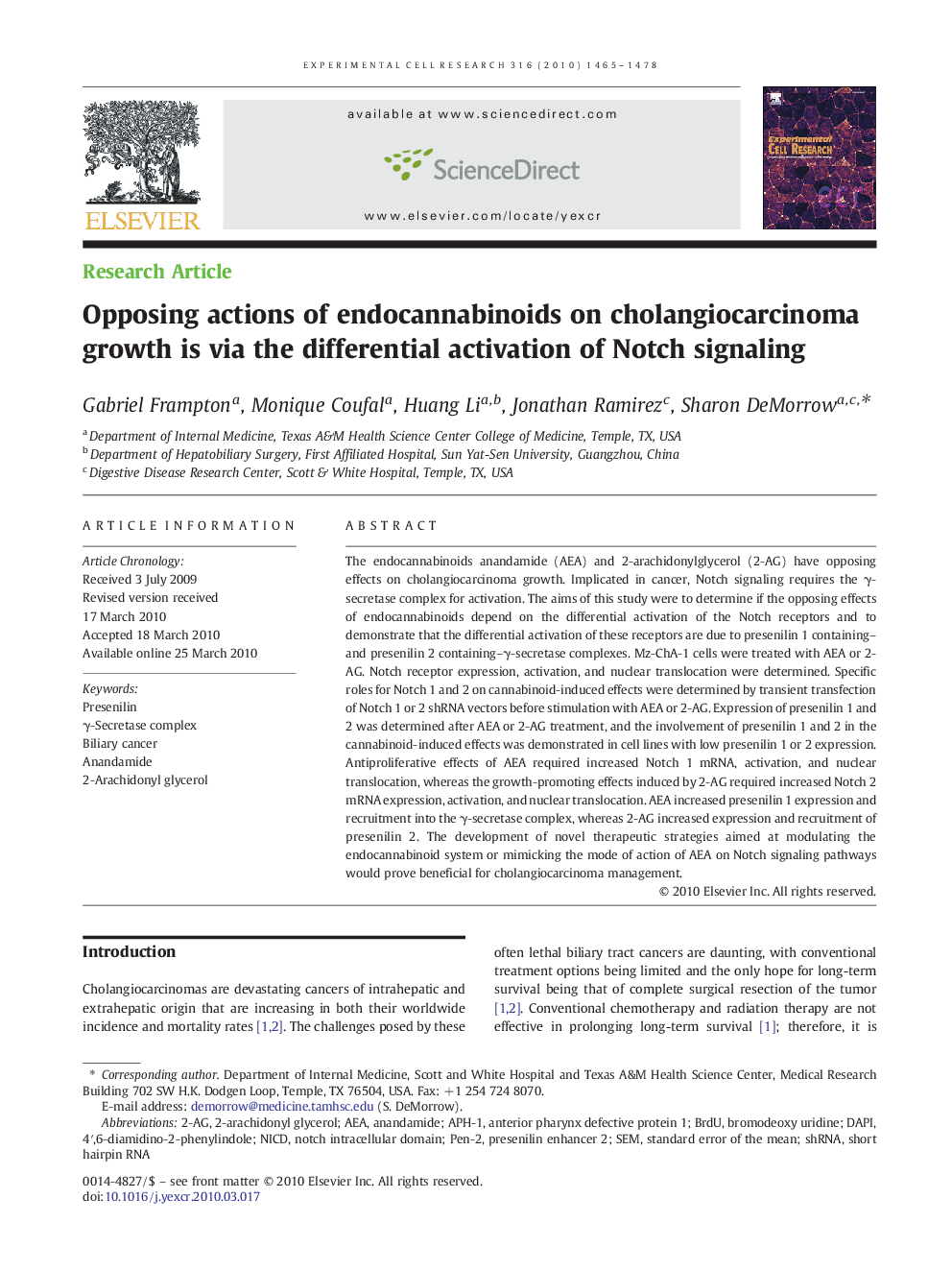| Article ID | Journal | Published Year | Pages | File Type |
|---|---|---|---|---|
| 2131308 | Experimental Cell Research | 2010 | 14 Pages |
The endocannabinoids anandamide (AEA) and 2-arachidonylglycerol (2-AG) have opposing effects on cholangiocarcinoma growth. Implicated in cancer, Notch signaling requires the γ-secretase complex for activation. The aims of this study were to determine if the opposing effects of endocannabinoids depend on the differential activation of the Notch receptors and to demonstrate that the differential activation of these receptors are due to presenilin 1 containing– and presenilin 2 containing–γ-secretase complexes. Mz-ChA-1 cells were treated with AEA or 2-AG. Notch receptor expression, activation, and nuclear translocation were determined. Specific roles for Notch 1 and 2 on cannabinoid-induced effects were determined by transient transfection of Notch 1 or 2 shRNA vectors before stimulation with AEA or 2-AG. Expression of presenilin 1 and 2 was determined after AEA or 2-AG treatment, and the involvement of presenilin 1 and 2 in the cannabinoid-induced effects was demonstrated in cell lines with low presenilin 1 or 2 expression. Antiproliferative effects of AEA required increased Notch 1 mRNA, activation, and nuclear translocation, whereas the growth-promoting effects induced by 2-AG required increased Notch 2 mRNA expression, activation, and nuclear translocation. AEA increased presenilin 1 expression and recruitment into the γ-secretase complex, whereas 2-AG increased expression and recruitment of presenilin 2. The development of novel therapeutic strategies aimed at modulating the endocannabinoid system or mimicking the mode of action of AEA on Notch signaling pathways would prove beneficial for cholangiocarcinoma management.
